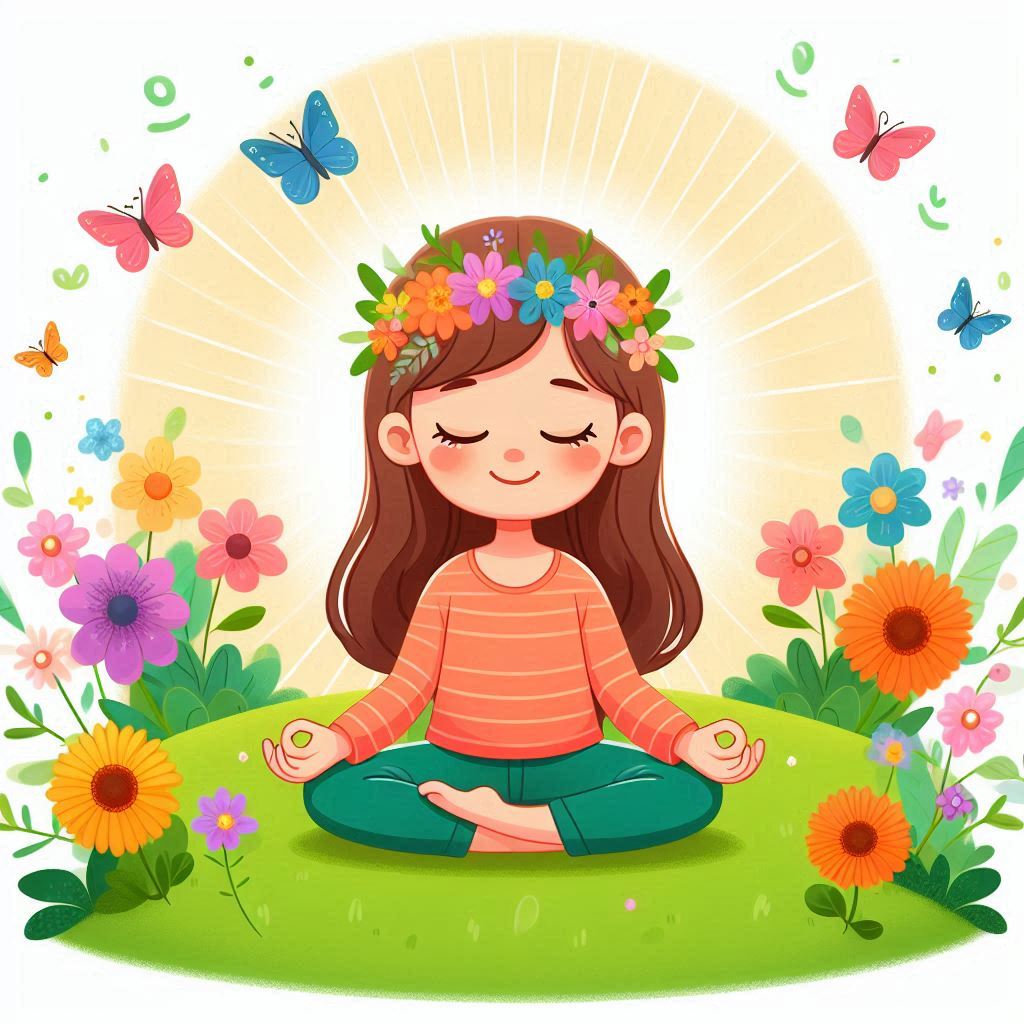The Power of Gratitude: Simple Practices for Boosting Happiness and Well-being
Introduction
Gratitude is more than just saying “thank you.” It is a powerful emotion and a practice that can significantly impact our lives. So, what is gratitude? It’s the appreciation of what one has, rather than focusing on what one lacks. It’s about recognizing the goodness in our lives, which often stems from sources outside ourselves. In this article, we will explore the science behind gratitude, its benefits, and practical ways to cultivate it in our daily lives.

The Science Behind Gratitude
Psychological Benefits
Gratitude has profound psychological benefits. Studies have shown that regularly practicing gratitude can enhance your overall mood and increase your levels of happiness. When you focus on what you are grateful for, it helps to shift your mindset from negative to positive, fostering a sense of well-being and contentment.
Physical Health Benefits
Gratitude isn’t just good for your mind; it’s beneficial for your body too. People who practice gratitude report fewer aches and pains, lower blood pressure, and improved immune function. This could be because gratitude promotes healthier behaviors, such as exercise and regular check-ups, and reduces stress, which is known to harm the body.
Impact on Social Relationships
Expressing gratitude can strengthen your relationships. When you show appreciation for others, it fosters a sense of trust and intimacy. Whether it’s thanking a friend for their support or acknowledging a colleague’s hard work, gratitude helps build and maintain healthy, supportive relationships.
Research Studies Supporting Gratitude
Numerous studies back up these claims. For instance, research from the University of California, Davis, found that people who kept a weekly gratitude journal exercised more, had fewer physical complaints, and felt better about their lives compared to those who recorded daily hassles or neutral events.
Types of Gratitude
Trait Gratitude
Trait gratitude refers to a general disposition to feel thankful across different situations and over time. It’s a part of your personality and influences how you perceive and interact with the world.
State Gratitude
State gratitude is a temporary feeling of thankfulness triggered by specific events or circumstances. It’s more about the immediate response to a positive experience or gesture.
Benefits of Each Type
Both trait and state gratitude offer significant benefits. Trait gratitude contributes to long-term well-being and resilience, while state gratitude provides immediate emotional boosts and enhances social bonds.

Symptoms and Signs of a Gratitude Practice
Increased Happiness
One of the most noticeable signs of practicing gratitude is a boost in overall happiness. When you regularly reflect on the positive aspects of your life, it lifts your spirits and promotes a more joyful outlook.
Reduced Stress and Anxiety
Gratitude can significantly reduce stress and anxiety levels. By focusing on the good, you are less likely to dwell on negative thoughts, which helps lower stress hormones in the body.
Improved Sleep
People who practice gratitude tend to sleep better. This might be because they go to bed with a positive mindset, reducing worries that could otherwise keep them awake.
Enhanced Empathy and Reduced Aggression
Gratitude encourages empathy and understanding, making you less likely to retaliate or hold grudges. It fosters a sense of compassion and reduces aggressive tendencies.
Causes and Risk Factors for Lack of Gratitude
Cultural and Societal Influences
In some cultures, gratitude might not be as emphasized, leading to a lack of practice. Societal pressures to constantly achieve and acquire more can also overshadow the importance of being thankful for what you have.
Personal History and Upbringing
Your upbringing plays a significant role in how you perceive gratitude. If you were raised in an environment where appreciation wasn’t expressed, you might find it harder to practice gratitude.
Mental Health Issues
Conditions like depression and anxiety can make it challenging to feel grateful. Negative thought patterns and low self-esteem often associated with these conditions can overshadow feelings of thankfulness.
Diagnosis and Tests
Psychological Assessments
Psychologists use various assessments to measure an individual’s level of gratitude. These tests can provide insights into how often and how deeply a person feels thankful.
Self-Reflection Techniques
Self-reflection exercises, such as writing about moments of gratitude, can help individuals assess their gratitude levels and identify areas for improvement.
Journaling Practices
Keeping a gratitude journal is a practical way to track and enhance your gratitude practice. By regularly noting down things you are thankful for, you can see the positive impact it has on your life over time.
Practical Ways to Cultivate Gratitude
Keeping a Gratitude Journal
A gratitude journal is one of the most effective ways to cultivate gratitude. Each day, write down three things you are grateful for. This practice helps you focus on the positive aspects of your life and creates a habit of thankfulness.
Expressing Appreciation to Others
Taking the time to thank others can strengthen your relationships and enhance your sense of gratitude. Whether it’s a handwritten note or a verbal acknowledgment, expressing appreciation makes both you and the recipient feel good.
Practicing Mindfulness and Meditation
Mindfulness and meditation can help you become more aware of the positive aspects of your life. By focusing on the present moment, you can appreciate the small joys and blessings that might otherwise go unnoticed.
Daily Gratitude Affirmations
Starting your day with gratitude affirmations can set a positive tone. Simple statements like “I am grateful for the love and support of my family” can shift your mindset and increase your feelings of thankfulness.
Strategies for Maintaining a Gratitude Practice
Setting Reminders and Cues
Set reminders on your phone or leave notes around your house to remind you to practice gratitude. These cues can help you make gratitude a consistent part of your routine.
Involving Family and Friends
Encouraging family and friends to join you in practicing gratitude can make it more enjoyable and sustainable. Share your experiences and support each other in maintaining the practice.
Combining Gratitude with Other Positive Habits
Integrate gratitude into other positive habits, such as exercise or healthy eating. For example, take a moment to appreciate your body’s abilities before a workout or express thanks for nutritious food.
Personal Stories and Case Studies
Testimonials of Individuals Transforming Their Lives
Many people have transformed their lives through gratitude. For instance, John, a former executive, turned his life around after starting a gratitude journal. He reports feeling happier, more content, and less stressed.
Celebrity Endorsements and Examples
Celebrities like Oprah Winfrey and Richard Branson swear by the power of gratitude. Oprah has often spoken about her gratitude journal, which she credits for helping her maintain a positive outlook.
Everyday Heroes Embracing Gratitude
Everyday individuals, like teachers, nurses, and parents, also embrace gratitude practices to enhance their well-being. Their stories show that gratitude is accessible to everyone, regardless of their circumstances.
Expert Insights
Quotes from Psychologists and Researchers
“Gratitude helps people refocus on what they have instead of what they lack. And, although it may feel contrived at first, this mental state grows stronger with use and practice.” – Robert Emmons, Ph.D.
Tips from Life Coaches and Wellness Experts
Life coaches often recommend gratitude as a foundational practice for personal development. They suggest starting small and being consistent to see long-term benefits.
Medical Professional Opinions
Medical professionals acknowledge the health benefits of gratitude. Dr. P. Murali Doraiswamy, a renowned neuroscientist, states, “If [thankfulness] were a drug, it would be the world’s best-selling product with a health maintenance indication for every major organ system.”
Challenges and How to Overcome Them
Dealing with Skepticism and Negativity
It’s common to encounter skepticism when starting a gratitude practice. Overcome this by focusing on the small, undeniable positives in your life and gradually expanding your gratitude scope.
Overcoming Forgetfulness
Life gets busy, and it’s easy to forget to practice gratitude. Use tools like apps or set daily reminders to keep gratitude at the forefront of your mind.
Addressing Deep-Rooted Issues
Deep-rooted issues such as trauma or chronic mental health conditions can make gratitude challenging. In such cases, professional help from a therapist can provide strategies to incorporate gratitude into your healing process.
The Role of Technology in Practicing Gratitude
Gratitude Apps and Tools
Numerous apps can help you practice gratitude, such as Gratitude Journal 365, Happyfeed, and Grateful. These tools offer prompts, reminders, and a community to keep you motivated.
Online Communities and Forums
Joining online communities and forums dedicated to gratitude can provide support and inspiration. Sharing your journey and learning from others can enhance your practice.
Digital Journaling Platforms
Platforms like Penzu and Day One offer digital journaling options that make it easy to keep track of your gratitude entries and reflect on your progress.
Gratitude in Different Cultures
Eastern Philosophies and Practices
In Eastern cultures, gratitude is often integrated into daily life through practices like yoga, meditation, and traditional rituals. These practices emphasize mindfulness and appreciation for the present moment.
Western Approaches to Gratitude
Western approaches to gratitude often focus on self-improvement and personal happiness. Practices like journaling and affirmations are popular ways to cultivate gratitude.
Cross-Cultural Comparisons
While the methods may vary, the underlying principle of gratitude remains consistent across cultures: recognizing and appreciating the good in life leads to greater happiness and well-being.
Future Trends in Gratitude Practices
Emerging Research Areas
Researchers are exploring new areas of gratitude, such as its impact on workplace productivity and community well-being. These studies aim to broaden our understanding of gratitude’s benefits.
Innovations in Gratitude Technology
Innovations in technology are making gratitude practices more accessible. Virtual reality experiences and AI-driven apps are being developed to enhance gratitude exercises.
Predictions for the Future of Gratitude Practices
As awareness of gratitude’s benefits grows, it is likely to become a more integral part of wellness programs, education systems, and workplace cultures worldwide.
Conclusion
Gratitude is a powerful tool for boosting happiness and well-being. By incorporating simple practices like journaling, expressing appreciation, and mindfulness, you can transform your life. Start small, be consistent, and watch how gratitude enhances your overall sense of joy and fulfillment.
FAQs
What is gratitude?
Gratitude is the appreciation for what one has, rather than focusing on what one lacks. It involves recognizing the goodness in life, often stemming from external sources.
How can I start a gratitude practice?
Start by keeping a gratitude journal, expressing appreciation to others, practicing mindfulness, and using daily affirmations. Small, consistent steps can make a big difference.
What are the benefits of practicing gratitude?
Practicing gratitude can boost happiness, reduce stress and anxiety, improve sleep, enhance empathy, and strengthen social relationships. It also has physical health benefits, such as lower blood pressure and improved immune function.
How does gratitude impact mental health?
Gratitude shifts your focus from negative to positive, promoting a sense of well-being and contentment. It reduces stress and anxiety, increases happiness, and can even help with depression.
Can gratitude improve physical health?
Yes, gratitude can improve physical health. It promotes healthier behaviors, reduces stress, and enhances overall well-being, leading to fewer physical complaints and better health outcomes.






